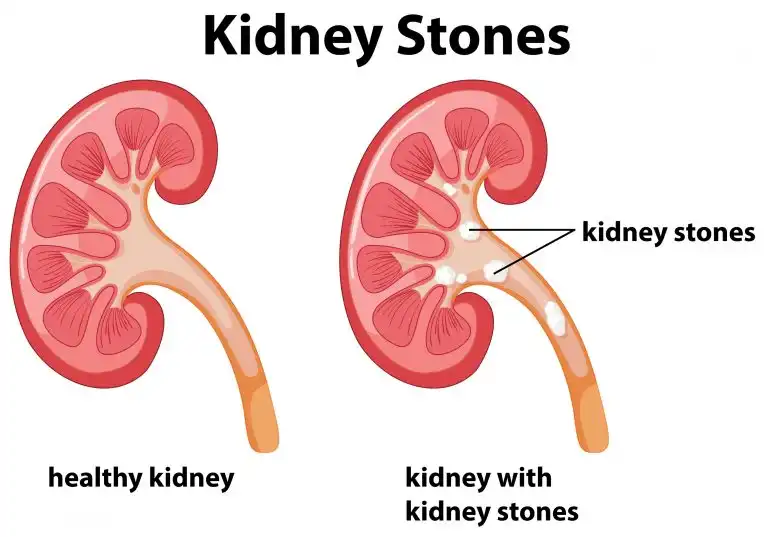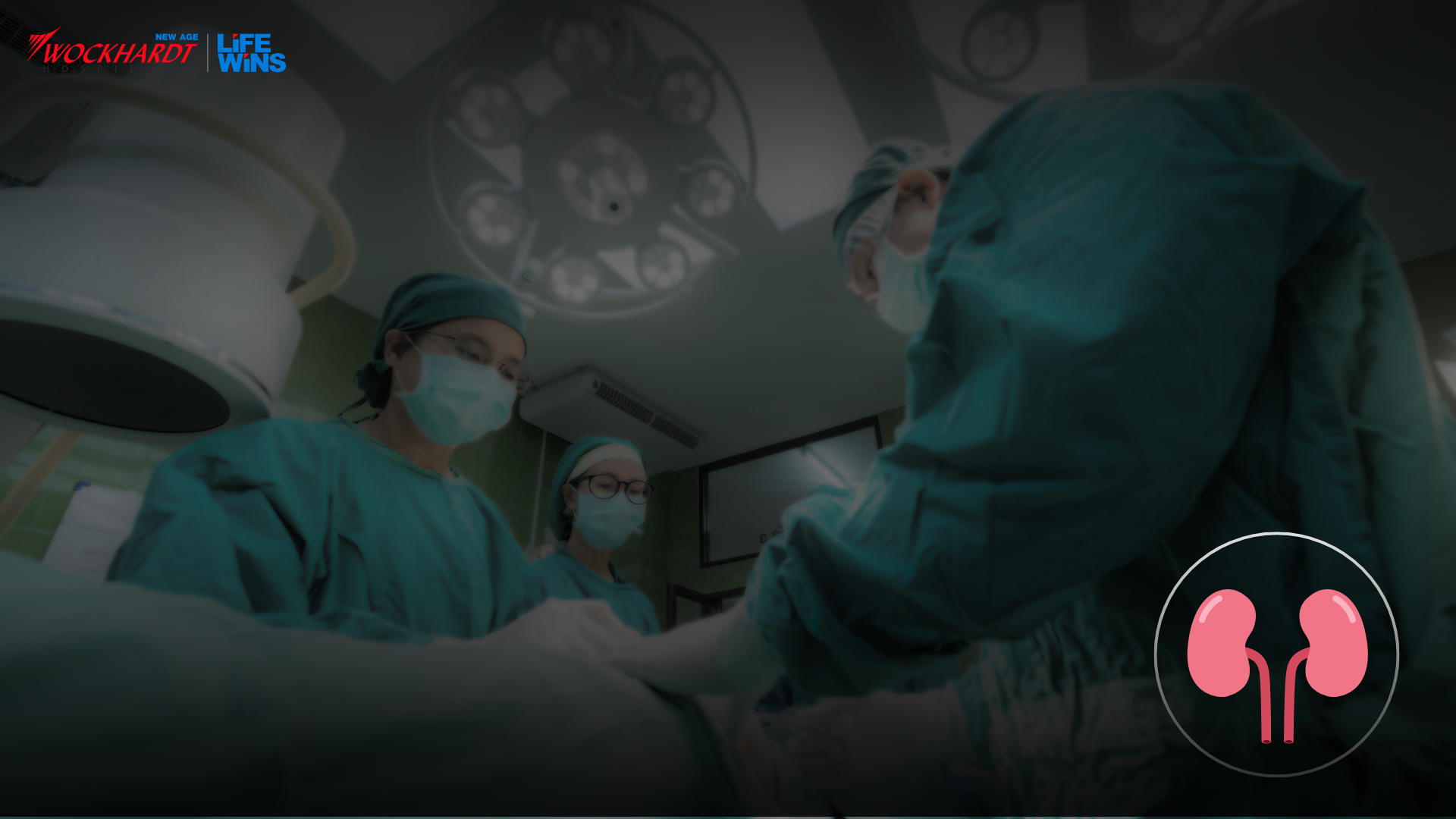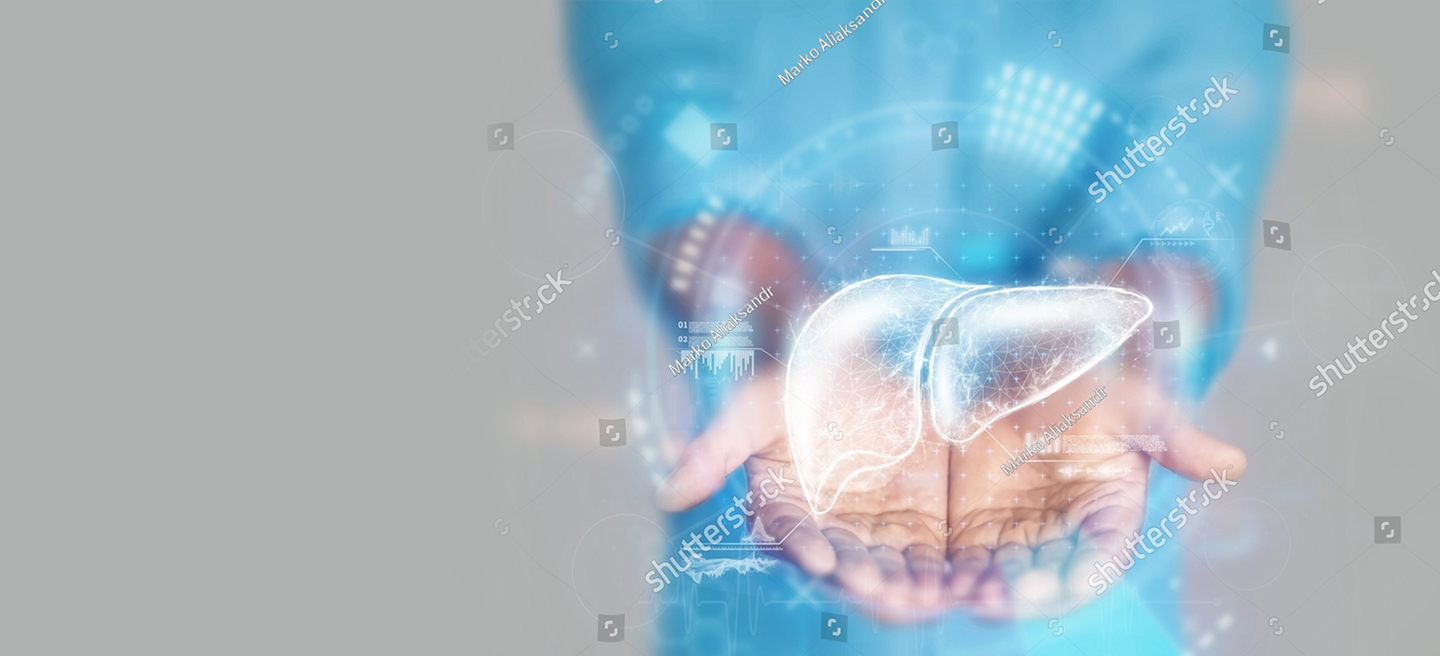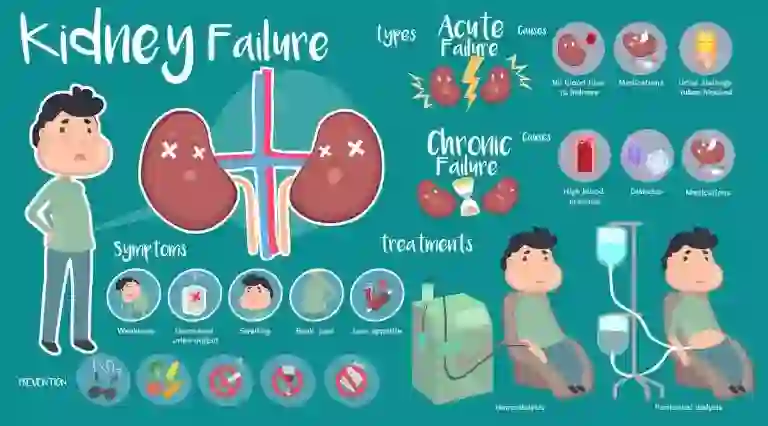What is a Kidney Stone?
A kidney stone is a hard, crystalline mineral material formed within the kidney or urinary tract. Most common symptoms of a kidney stone include flank pain and blood in the urine can be present also.
Nephrolithiasis” is the medical term for kidney stones. One in every 20 people develops kidney stones at some point in their life.
Kidney stones form when there is a decrease in urine volume and/or an excess of stone-forming substances in the urine. Dehydration is a major risk factor for kidney stone formation.
Most kidney stones eventually pass through the urinary tract on their own within 48 hours, with ample fluid intake and do not need interventional treatment,
Kidney Stone Symptoms
- Pain in the back, belly or side which is extremely sever. Some people who’ve experienced kidney stones compare the pain to childbirth or getting stabbed with a knife.
- Symptoms of a kidney stone include flank pain (the pain can be quite severe) and blood in the urine.
- It’s common for people with a kidney stone to have nausea and vomiting.
- Pain or burning sensation during urination.
- Fever and chills are signs that you have an infection in your kidney or another part of your urinary tract.
Causes of Kidney Stone
When there is a high concentration of minerals and other chemicals in your urine, such as uric acid, calcium, and oxalate, they combine to form crystals causing kidney stones. Subsequently, the crystals unite to form one or more hard deposits, sometimes known as “stones.” The main causes of kidney stone include:
- Dehydration: The main reason is insufficient fluid intake. Lack of enough hydration in the body causes the urine to become highly concentrated, causing crystal formation.
- Dietary Factors: Taking a high dose of oxalate-rich foods, such as spinach and nuts or chocolate can also trigger kidney stone formation. Stones can be caused by an overconsumption of salt and animal proteins.
- Family History: Another factor behind kidney stones is genetic predisposition. Kidney stone patients with a family history of the condition are more vulnerable to developing this condition.
- Medical Conditions: Certain medical conditions, like obesity and inflammatory bowel disease, increase the chances of kidney stones. Metabolic disorders, such as hyperparathyroidism, can lead to stone formation.
- Age and Gender: Kidney stones are common in males as compared to females. With age, the kidney function changes, which leads to an increased risk.
- Urinary Tract Infections (UTIs): Infections can also promote stone development. Bacteria-induced changes in urine composition can cause stones to form in the kidneys.
Types of Kidney Stones
Kidney stones are broadly divided into five types. Based on your diet and family history, you may be at a higher risk of developing specific types of kidney stones. Let’s look at the different types of kidney stones:
1. Calcium Oxalate Stones: The majority of kidney stones are made of calcium, mostly calcium oxalate. Every day, your liver produces oxalate, or it may be absorbed through food. Metabolic disorders, including renal tubular acidosis are associated with higher chances of developing this type of stone.
2. Calcium Phosphate Stones: The cause of calcium phosphate kidney stones is changes in the regular operation of the urinary system. This kind of stone, which frequently develops concurrently with calcium oxalate stones, may be caused by kidney or urinary problems.
3. Uric Acid Stones: Kidney stones of this kind are found commonly. Consumption of large amounts of purine increases the synthesis of monosodium urate, which can precipitate kidney stones in some situations. Some types of kidney stones usually develop in families, suggesting a genetic predisposition.
4. Struvite Stones: A urinary tract infection can lead to the formation of struvite stones. These stones can occasionally occur with few symptoms or little warning, growing swiftly and becoming rather big.
5. Cystine Stones: People who have cystinuria, a genetic condition that causes the kidneys to discharge too much of a certain amino acid, are at risk of developing these stones.
Risk Factors Associated with Kidney Stones:
- Genetic factor increases your risk of getting kidney stones, forty percent of the people who get kidney stones have relatives who have them, too.
- Excess amount of certain minerals in your system may increase your risk.
- When you’re overweight, you tend to get kidney stones more often.
- Gout, the painful condition when uric acid builds up in your blood increases your risk of kidney stones.
- If you’ve had certain types of gastric bypass surgery or other intestinal surgery, the risk may go up.
- Certain kidney diseases may make you more prone to getting kidney stones eg polycystic kidney disease, in which clusters of cysts grow in your kidneys. Another is medullary sponge kidney, a birth defect that causes cysts to form in the organ’s tubes.
Preventive Tips to Avoid Kidney Stones:
- Take charge of your diet and take any medications as prescribed to you.
- Drink lots of water. Stay hydrated, especially when you exercise.
- Stay away from Colas. These beverages are high in fructose and phosphates, which may lead to kidney stones.
- Avoid or eat less of foods with high amounts of ingredients like sodium chloride, monosodium glutamate (MSG), and sodium nitrate.
- Choose foods wisely. Usually it’s good to get more spinach and nuts in your diet. But if you have calcium oxalate stones, which are the most common type, your doctor may tell you to avoid limit foods high in oxalates.
- Avoid excess dairy foods and animal protein as they can up your chances of less common types of kidney stones.
- Eat citrus fruits like lemons and limes that are high in citrate, which helps prevent kidney stones.
- Get enough calcium from foods. The right amount of calcium can block other substances in the digestive tract that may cause stones. However too much of it may increase your chances of getting calcium oxalate stones.
- Eating animal protein may increase your chances of developing kidney stones
- Keep your weight in control. Studies have shown that being overweight increases your risk of kidney stones.
Diagnosis and Treatment of Kidney Stones:
- Diagnosis of kidney stones is best accomplished using an ultrasound, intravenous pyleography (IVP), or a CT scan.
- Most kidney stones will pass through the ureter to the bladder on their own with time.
- Treatment includes pain-control medications and, in some cases, medications to facilitate the passage of urine.
- Ketorolac (Toradol), an injectable anti-inflammatory drug, and narcotics may be used for pain control when over-the-counter pain control medications are not effective.
- If needed, lithotripsy or surgical techniques may be used for stones which do not pass through the ureter to the bladder on their own. Lithotripsy is a procedure which can be done to remove stones. Extracorporeal shock wave lithotripsy (ESWL) is a non-invasive treatment of kidney stones and biliary calculi.
However if you are suffering from kidney stones do consult our Urology team for further guidance at Wockhardt Hospitals.
FAQs on Kidney Stones
Q. What dissolves kidney stones fast?
Increasing water intake is crucial for dissolving small kidney stones quickly, as it promotes urine flow. Citric acid-rich fluids like lemon juice may help break down certain stones. Medications, such as tamsulosin or citrate solutions may also be prescribed to facilitate stone passage and prevent their formation.


















